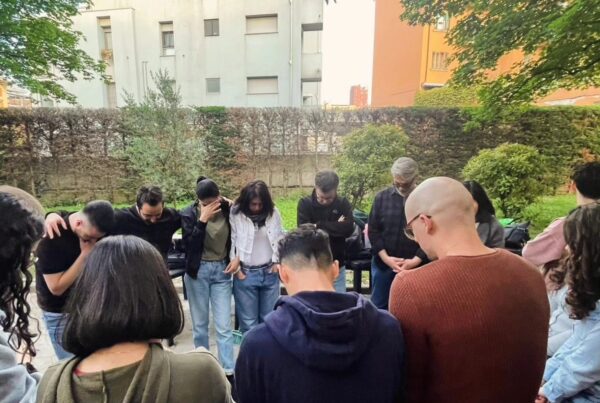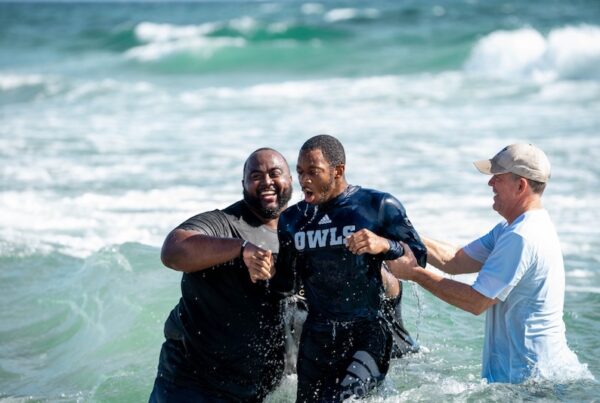They say youth ministers know, deep in their bones, when they’re on their last bus trip full of teenagers. In the same deep-in-my-bones way, in 2019—nearing the tenth anniversary of the church plant I helped start—I knew I needed a break as a pastor. I needed time for a rest that would be longer than a sabbatical. It was time for our congregation to find their next pastor.
A ministry hired me to be an associate editor for them. It was still difficult work that impacted the church, but it gave me space to rest and process my years of church planting. Thanks to a Christian counselor, I began to work through past events extending back before the launch of our church plant.
I also took classes and pursued credentials for project management and professional leadership coaching. I’m now working for Grimké Seminary as their managing editor. I’m still an ordained pastor, but I’m also a credentialed project manager and a professional coach.
The Help We Pursue
My circuitous path has brought me into close contact with the types of help pastors typically pursue at various times—counseling, consulting, and coaching. I want to be quick to say that none of these helping professions are essential to church leaders. It is entirely conceivable that a pastor may have a very long, fruitful, and faithful ministry without ever meeting with a counselor, ministry consultant, or leadership coach.
But sometimes, we get stuck in the weeds and need outside counsel from someone who specializes in helping pastors and elder teams navigate challenges. If that’s you, what type of professional should you look for? What’s the difference between a counselor, consultant, or coach?
Sometimes, we get stuck in the weeds and need outside counsel from someone who specializes in helping pastors and elder teams navigate challenges. Click To TweetThe difference between these three types of professionals is summarized in two questions: “Are they subject matter experts?” and “Are they helping you look into the future or the past?” First, do they have subject matter expertise in ministry or, more specifically, in the ministry challenges you’re facing—financials, conflict resolution, leadership development, or team alignment?
Second, do you need help with something in your (or your team’s) past or in the future? When we don’t take time to prayerfully apply God’s truth to our past, unreconciled events can have radical implications for how we function in the present. At the same time, we’re always facing future obstacles or goals, replete with all their challenges.
What Tool for What Problem?
When you’re seeking help from an outside source, how do these two factors—subject matter expertise and forward-or backward-looking perspectives—play into your decision? Let’s look at each professional and see how they might help you or your ministry team.
- Consultants: Consultants must have subject matter expertise and be forward-looking. Consultants do not deal with history; they aren’t trying to solve unreconciled events. They’re operating from their expertise and offering their advice for a problem or goal in the future. That advice is often extremely helpful. A good consultant has put in their time and knows what you’re facing. They provide wisdom and teach you how to apply it.
- Coaches: A leadership coach doesn’t need subject matter expertise; it may help, but it’s not necessary. That’s because a coach’s main job isn’t to solve your problem but to ask strategic questions that help you solve your problem. Coaches are also forward-looking; they aren’t trying to help you reconcile past events.
- Counselors: Counselors, like coaches, do not need to be subject matter experts—it may be more helpful if they aren’t. Counselors (like coaches) are skilled questioners who focus on helping their clients develop the skills to solve their problems. Counselors look backward. They help you figure out past events and relationships that negatively affect your current relationships.
Choose Wisely
None of these helping professionals is necessary—you may never need one. But you might reach a point in your leadership development or pastoral ministry when you do. Those two questions around the themes of subject matter expertise and whether your problem is in the past or the future will help you decide what kind of help to pursue.
Over the course of my twenty years of pastoral ministry, I’ve benefited from all three types of professionals. I’m immensely grateful for the men who study and train to serve pastors and elder teams as coaches, consultants, and counselors. May their good labor increase the fruitfulness of pastors and the health of churches—and may we seek the right kind of help when we need it.










